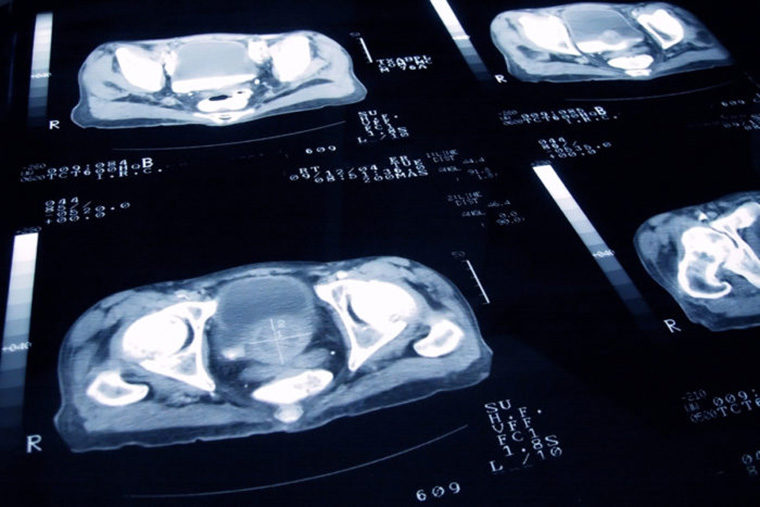Using genetic sequencing, scientists have revealed the complete DNA makeup of more than 100 aggressive prostate tumors, pinpointing important genetic errors these deadly tumors have in common. The study lays the foundation for finding new ways to treat prostate cancer, particularly for the most aggressive forms of the disease.
The multicenter study, which examined the genomes of tumors that grew and spread quickly, was led by Washington University School of Medicine in St. Louis and the University of California, San Francisco. The research appears July 19 in the journal Cell.
“This study could aid the search for better therapies to treat aggressive prostate cancer,” said co-first author Christopher A. Maher, an associate professor of medicine and an assistant director at The McDonnell Genome Institute at Washington University School of Medicine. “More immediately, the new information could help doctors find ways to identify which patients may develop aggressive tumors, and help guide their treatment decisions.”
More than 160,000 cases of prostate cancer are diagnosed each year in the U.S. While some 80 percent of prostate cancer patients have tumors that are slow-growing and have effective treatment options, about 20 percent of such patients develop the most aggressive forms of the disease — the focus of the new study.
Most genetic studies of prostate cancer have focused on parts of the genome that control what proteins a tumor manufactures. Proteins act like the machinery of cells. When they function properly, proteins perform cellular tasks required for good health. But when proteins don’t work properly, disease, including cancer, can result.
Still, genes that make proteins represent only 1 to 2 percent of the entire genome. The new analysis is the first large-scale study of the whole genomes — all of the DNA, including all of each tumor’s genes — of metastatic prostate tumors, and reveals that many of these tumors have problems in the sections of the genome that tell protein-coding genes what to do.
“Protein-coding genes are important, but when you focus only on them you can miss mutations in regions of the genome that regulate those genes,” Maher said.
The researchers were surprised to find that about 80 percent of the aggressive tumors studied had the same genetic alterations in a region of the genome that controls the androgen receptor, Maher said. This genetic error dialed up levels of androgen receptor on prostate cancer cells. Such receptors bind to male hormones such as testosterone and drive tumor growth.
“This was one of the most surprising findings,” said Maher, also a research member of Siteman Cancer Center at Barnes-Jewish Hospital and Washington University School of Medicine. “We saw too many repeated copies of DNA in this region of the genome. In some of these patients, the androgen receptor looks totally normal. But they have too much androgen receptor because the receptor’s regulatory region is dialed up, which would be missed by the protein-coding focused sequencing studies.”
A common treatment for prostate cancer, beyond the traditional options of surgery, chemotherapy and radiation, involves androgen deprivation therapy, in which drugs are used to block testosterone from binding to the androgen receptor. Since prostate tumors are often hormone-driven cancers, blocking testosterone from binding this receptor slows tumor growth.
All the men in this study had tumors that developed resistance to androgen deprivation therapy, meaning the androgen receptor is always switched on, fueling the tumor, whether testosterone is present or not. Patients in this situation have no effective treatment options. The researchers showed that more than 80 percent of these patients had mutations that help explain the aggressiveness of their cancers; these genetic errors activated the androgen receptor.
The researchers, including co-first author Ha X. Dang, a senior scientist at Washington University, also found important roles for other genes known to be involved in cancer, including those that help with DNA repair, such as TP53 and BRCA2.
